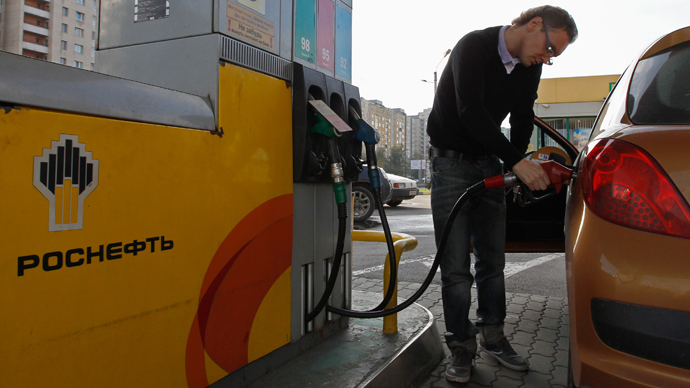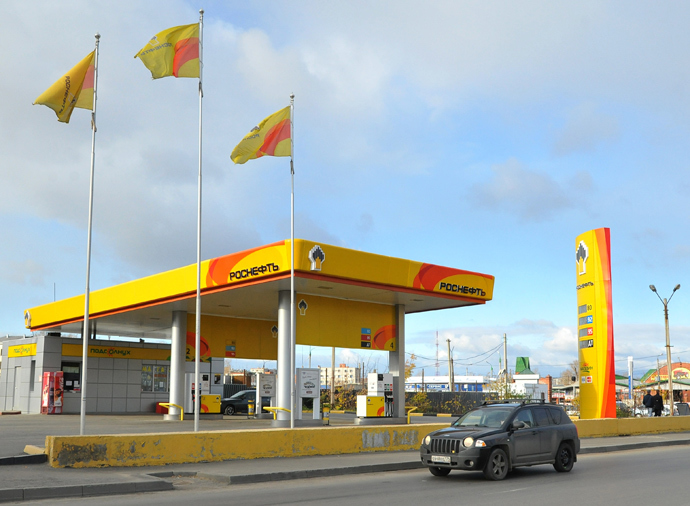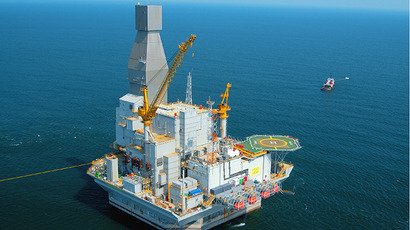Rosneft to partner with Norway's Statoil in Arctic

Statoil of Norway, and Russian state-owned oil company Rosneft are partnering in a venture after being awarded a 20 percent stake in Norway’s continental shelf in the Barents Sea.
Norway has estimated the blocks, which span 1,213 square
kilometers, contain a potential 400 to 600 million barrels of
recoverable oil.
RN Nordic Oil AS, an indirect subsidiary of Rosneft, will work
with Norway’s Statoil, who will act as an operator, to
develop four ‘promising and prolific’ blocks near recently
discovered Skrugard and Havis areas in the Casberg fields.
"This license award marks for Rosneft a promising firm entry
into the Norwegian continental shelf in the Barents Sea. It also
marks a major step in developing the long-term cooperation with
Statoil," Rosneft said in a statement.
Rosneft’s partnership with Statoil is key in the company’s
development and influence in the region.
“We are pleased to have been awarded the license and
look forward to making active contributions to the License work
program. We are convinced that application of the latest
technology jointly with our strategic partner Statoil will enable
us to develop these acreages in the most efficient way,”
Rosneft Vice President for Offshore Projects Zeljko Runje said.
Lukoil, which didn’t receive any Arctic drilling permits from Russia, also received a
license through Statoil to jointly develop hydrocarbons.
Norway’s oil magnate publicized the licensing results on
Wednesday, and a total of 24 blocks were awarded to 29 different
companies. Twenty of the licenses are for the Barents Sea and
four are for the Norwegian Sea.
The bidding companies submitted their applications by December
2012, and development will begin no earlier than ten years time.

Rosneft has also partnered with Statoil to explore shale oil
deposits in the Khadum Formation in Russia’s Stavropol Region,
and fields beneath the Arctic Sea.
Norway and Russia are in close competition for Germany’s energy market.
Norway boasted record high exports in 2012, while Russia’s
largest European exporter, Gazprom, suffered its worst numbers in
10 years.
Norway increased its exports 16% in 2012 to reach 107.6bn cubic
meters, according to Europe’s key statistics office Eurostat
Rosneft on a roll
After taking over TNK-BP in March, Rosneft has been picking up joint venture projects worldwide.
Sechin aims to chip away at the Gazprom monopoly, and to double
Rosneft’s domestic gas market by 2020, from 9% to at last 19%, in
plans made clear at an investor meeting in London on Tuesday.
In May, Rosneft signed a cooperation agreement with INPEX, Japan’s largest
energy explorer, to jointly explore for oil and gas in the Sea of
Okhotsk, in which it will hold a two-thirds stake.
In May, Rosneft teamed up with Venezuelan national oil
company PDVSA to explore the Orinico river delta, a 342 square
kilometer heavy oil belt. Rosneft’s share will be 40 percent.
In March, Rosneft subsidiary Neftegaz America Shelf LP acquired a
30 percent interest in 20 deep water exploration blocks in the
Gulf of Mexico held by Exxon Mobil. The
blocks have a total area of 450 square kilometers
Rosneft is considering an intial public offering, but hasn’t made
any final public announcements on the matter.
If Rosneft is privatized, it stands to gain market capitalization
and higher profits. The public offering, similar to VTB's, would
likely be made on the Moscow Stock Exchange, and the Kremlin
would keep a majority share of the company, at least 60%.














